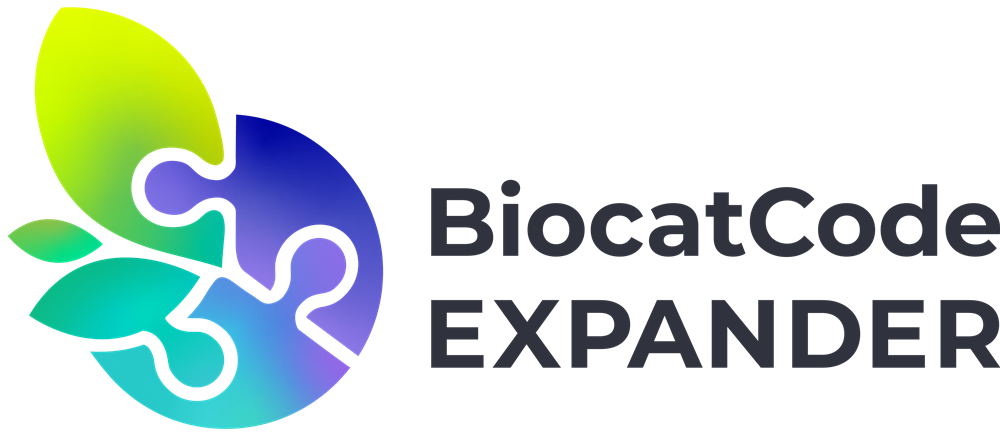10 international PhD fellowships in the European Doctoral Network BiocatCodeExpander for a training on innovative biotechnological applications of non-canonical amino acids for biocatalysis, synthetic biology, organic chemistry and computational biology.
PhD FELLOW # 8
WP3: ENZYME ENGINEERING WITH NON-CANONICAL AMINO ACIDS
DESIGN AND EVOLUTION OF 4-OXALOCROTONATE TAUTOMERASE FOR THE MORITA-BAYLIS-HILLMAN REACTION USING NON-CANONICAL AMINO ACIDS
Organization
University of Groningen, The Netherlands
The University of Groningen (RUG), founded in 1614, enjoys an international reputation as one of the oldest and leading research universities in Europe. RUG has extended education and research activities in all major academic disciplines (~30,000 bachelor/master students and ~1,500 PhD students), including a strong research program in the life sciences/biotechnology area. The RUG group of Prof. Dr. G.J. Poelarends (currently 1 postdoc, 13 PhDs, 2 technicians) involved in this project has a strong (inter)national position in the area of enzyme discovery, characterization, promiscuity, engineering, and biocatalysis. The group has an innovative research program on C-N, C-O and C-C bond-forming enzymes. The group solved X-ray structures, catalytic mechanisms, and the basis of enantioselectivity of these enzymes, performed protein engineering studies aimed at improving their catalytic properties, and developed new biocatalytic conversions with these enzymes. Several projects are running in collaboration with industrial partners.
Doctoral Supervisor
Prof. Gerrit Poelarends
Enrolment in Doctoral degree
University of Groningen (RUG)
Secondments
At Vrije Universiteit Amsterdam (Amsterdam, The Netherlands) with Dr. Ivana Drienovská
& Enantis (Brno, Czech Republic) with Dr. Radka Chaloupková
Objectives
- Optimization of suitable assays for following the Morita-Baylis-Hillman biocatalysis
- Preparation of panel of 4-oxalocrotonate tautomerase variants with incorporated non-canonical amino acids
- Crystal structures and detailed structural and mechanistic characterization of best performing variants
- Directed evolution of best chosen variants
Fields related to the project
(1) Synthetic biology
(2) Biocatalysis
(3) Biochemistry
(4) Structural biochemistry
Qualifications
- Researchers can be of any nationality
- The researcher must not have carried out his/her main activity (work, studies, etc.) in the country of his/her host organization for more than 12 months in the 3 years immediately prior to recruitment.
- The researcher should not have obtained a PhD degree and should not have more than 4 year full-time or equivalent research experience since obtaining the degree which makes them eligible for starting the PhD degree
- Applicants must demonstrate excellent proficiency in English language to be eligible
- Researchers must demonstrate an excellent academic record. Hold a master’s degree (or equivalent) relevant to the project (chemistry, biochemistry, biotechnology, molecular sciences or related disciplines)
We offer
- Full-time contract (48 months) with the recruiting institution, enrolled in a PhD programme
- Salary and benefits are in accordance with the MSCA regulations for PhD students
- BiocatCodeExpander promote gender equality, open science practices and cutting-edge training.
- PhD students will be trained in an international, inter-disciplinary academic and industrial environment through state-of-the-art research
- Two secondments per PhD position and exciting summer schools
Application
The application, in English, must be submitted electronically by email to the BiocatCodeExpander email address biocatcodeexpander.beta@vu.nl before the 17/02/2023 (only applications that are complete, in English and submitted before the deadline will be considered eligible); send only PDF files, not Zip or Rar.
The preferred starting date is between April-November 2023
Please, submit the following documents in one PDF document:
- A cover letter, stating your motivation to join the doctoral network, and mentioning the choice of project you would prefer to apply for (max. 3 projects)
- CV: a one- to two page synopsis of yourself, your scientific interests, experience, current research work and list of publications
- Two letters of recommendation from former advisors/professors (or provide their contact information)
More information
Web site for additional job details: https://biocatcodeexpander.com/
Marie Skłodowska-Curie Actions / Doctoral Networks
This project has received funding from the European Union’s Horizon Europe research and innovation programme under the Marie Skłodowska-Curie grant agreement No 101072686.
